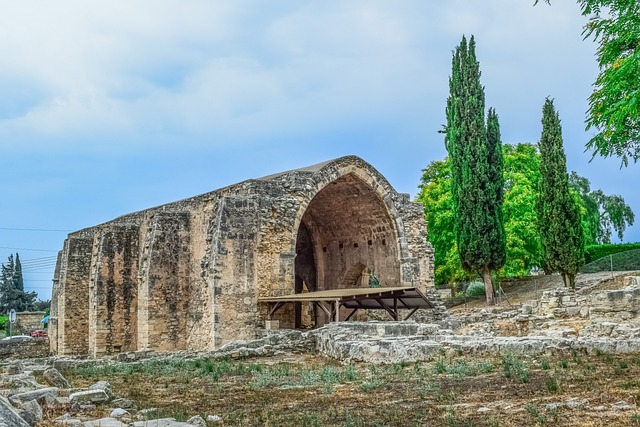An auxiliary bishop in the Catholic Church is a bishop who assists the diocesan bishop in his duties. They are appointed to help with the administration of a diocese and can also be assigned specific responsibilities within the diocese. Auxiliary bishops are ordained bishops and have the same sacramental powers as the diocesan bishop, but they do not have the same authority. They are typically appointed to assist in larger dioceses where the workload is too much for one bishop to handle alone.
Table of Contents
Role and Responsibilities of an Auxiliary Bishop
Have you ever heard the term “Auxiliary Bishop” in the Catholic Church and wondered what it means? Well, you’re not alone! Many people are unfamiliar with this title and the role that an Auxiliary Bishop plays within the Church. In this article, we will explore the responsibilities and duties of an Auxiliary Bishop, shedding light on this important position within the hierarchy of the Catholic Church.
An Auxiliary Bishop is a bishop who assists the diocesan bishop in his duties and responsibilities. While the diocesan bishop is the head of a particular diocese, an Auxiliary Bishop is appointed to help him in his pastoral work. This can include overseeing certain areas of the diocese, assisting with administrative tasks, and representing the diocesan bishop at various events and functions.
One of the primary roles of an Auxiliary Bishop is to support the diocesan bishop in his ministry to the faithful. This can involve visiting parishes, celebrating Mass, administering the sacraments, and providing spiritual guidance to the people of the diocese. An Auxiliary Bishop is often called upon to preside over special liturgical celebrations, such as confirmations, ordinations, and other important events in the life of the Church.
In addition to his pastoral duties, an Auxiliary Bishop may also be given specific responsibilities within the diocese. This can include overseeing certain departments or ministries, serving on committees, and assisting with the implementation of diocesan policies and initiatives. An Auxiliary Bishop is expected to work closely with the diocesan bishop and other clergy to ensure the smooth operation of the diocese and the spiritual well-being of its members.
Another important aspect of an Auxiliary Bishop’s role is to serve as a liaison between the diocesan bishop and the priests, deacons, religious, and laity of the diocese. An Auxiliary Bishop is often called upon to listen to the concerns and needs of the faithful, and to communicate these to the diocesan bishop. In this way, an Auxiliary Bishop helps to foster unity and collaboration within the diocese, ensuring that the Church’s mission is carried out effectively.
An Auxiliary Bishop is also called to be a visible and accessible presence in the diocese, reaching out to the people and communities that he serves. This can involve attending parish events, meeting with parishioners, and participating in community outreach programs. An Auxiliary Bishop is called to be a shepherd to the people of the diocese, guiding them in their faith journey and offering them support and encouragement along the way.
In conclusion, an Auxiliary Bishop plays a vital role in the life of the Catholic Church, assisting the diocesan bishop in his pastoral work and serving the faithful of the diocese. Through his ministry of service, leadership, and collaboration, an Auxiliary Bishop helps to strengthen the bonds of unity within the Church and to further the mission of spreading the Gospel to all people. So the next time you hear the term “Auxiliary Bishop,” you’ll have a better understanding of the important role that this position plays in the life of the Church.
Appointment Process for Auxiliary Bishops
Have you ever wondered what an auxiliary bishop is in the Catholic Church? If you’re not familiar with the hierarchy of the Church, it can be a bit confusing to understand the roles and responsibilities of different positions. In this article, we’ll take a closer look at what it means to be an auxiliary bishop and how they are appointed within the Church.
Auxiliary bishops are bishops who assist the diocesan bishop in his duties. They are appointed to help with the pastoral care of a diocese and can be assigned specific responsibilities by the diocesan bishop. While they do not have the same authority as the diocesan bishop, they play an important role in supporting and serving the local Church community.
The appointment process for auxiliary bishops is a carefully considered and prayerful one. When a diocese is in need of an auxiliary bishop, the diocesan bishop will typically consult with his advisors and other bishops to identify potential candidates. These candidates are usually priests who have demonstrated leadership, pastoral skills, and a deep commitment to serving the Church.
Once potential candidates have been identified, the diocesan bishop will submit their names to the Apostolic Nuncio, who is the Pope’s representative in a particular country. The Apostolic Nuncio will then conduct a thorough review of the candidates, considering their qualifications, experience, and suitability for the role of auxiliary bishop.
After the review process is complete, the Apostolic Nuncio will present a list of recommended candidates to the Congregation for Bishops in Rome. This congregation is responsible for advising the Pope on the appointment of bishops around the world. The Pope will then make the final decision on who will be appointed as an auxiliary bishop.
The appointment of an auxiliary bishop is a significant moment in the life of a diocese. It is a time of celebration and prayer as the new bishop is ordained and officially takes on his new role. The diocesan bishop, along with other bishops and clergy, will lay hands on the new bishop and pray for God’s blessing on his ministry.
Auxiliary bishops serve as a valuable resource for the diocesan bishop, providing support and assistance in carrying out the mission of the Church. They may be assigned specific responsibilities, such as overseeing a particular area of ministry or serving as a liaison with other organizations or communities.
In addition to their duties within the diocese, auxiliary bishops also participate in the broader life of the Church. They may be called upon to represent their diocese at regional or national meetings, or to serve on committees or councils that address important issues facing the Church.
Overall, the role of an auxiliary bishop is one of service and support. They work alongside the diocesan bishop and other clergy to care for the spiritual needs of the faithful and to help build up the Church community. Through their dedication and commitment, auxiliary bishops play a vital role in the life of the Church and in spreading the message of God’s love and mercy to all.
Differences Between an Auxiliary Bishop and a Diocesan Bishop

Have you ever heard the term “auxiliary bishop” and wondered what it means in the Catholic Church? Well, you’re not alone! Many people are unfamiliar with this title and its significance within the hierarchy of the Church. In this article, we will explore the role of an auxiliary bishop and compare it to that of a diocesan bishop.
First and foremost, it’s important to understand that both auxiliary bishops and diocesan bishops are ordained members of the clergy who hold positions of leadership within the Church. However, there are some key differences between the two roles that set them apart.
One of the main distinctions between an auxiliary bishop and a diocesan bishop is their jurisdiction. A diocesan bishop is the head of a diocese, which is a specific geographical area that encompasses a group of parishes. The diocesan bishop is responsible for overseeing the spiritual and administrative needs of the diocese, including appointing priests, managing finances, and making decisions that affect the local Catholic community.
On the other hand, an auxiliary bishop does not have his own diocese. Instead, he is appointed by the Pope to assist a diocesan bishop in his duties. This can include performing sacraments, presiding over liturgical ceremonies, and representing the diocesan bishop at various events. While an auxiliary bishop may have some administrative responsibilities, his primary role is to support and collaborate with the diocesan bishop in serving the needs of the faithful.
Another difference between an auxiliary bishop and a diocesan bishop is their level of authority. A diocesan bishop has full authority over his diocese and is ultimately responsible for all decisions made within its boundaries. An auxiliary bishop, on the other hand, has limited authority and must defer to the diocesan bishop in matters of governance and policy. This hierarchical structure ensures that there is a clear chain of command within the Church and helps to maintain unity and order among the clergy.
Despite these differences, both auxiliary bishops and diocesan bishops share a common goal: to spread the message of the Gospel and minister to the spiritual needs of the faithful. They work together to build up the Church and foster a sense of community among believers. While their roles may vary, their commitment to serving God and His people remains constant.
In conclusion, the title of auxiliary bishop may be unfamiliar to many, but its importance within the Catholic Church should not be underestimated. Auxiliary bishops play a vital role in supporting diocesan bishops and helping to carry out the mission of the Church. By understanding the differences between an auxiliary bishop and a diocesan bishop, we can gain a greater appreciation for the diverse roles and responsibilities of the clergy. Let us continue to pray for all bishops, both auxiliary and diocesan, as they strive to lead and guide the faithful on their spiritual journey.
History and Development of the Role of Auxiliary Bishops
Have you ever heard the term “auxiliary bishop” and wondered what it means in the Catholic Church? Well, you’re not alone! Many people are unfamiliar with this title and its significance within the hierarchy of the Church. In this article, we will explore the history and development of the role of auxiliary bishops, shedding light on their important contributions to the Church.
The role of auxiliary bishops dates back to the early days of the Catholic Church. In the early centuries, as the Church grew and expanded, the need for additional bishops to assist the diocesan bishop became apparent. These auxiliary bishops were appointed to help oversee the spiritual needs of the faithful in a particular region, working in collaboration with the diocesan bishop to ensure the well-being of the Church.
Over time, the role of auxiliary bishops evolved to encompass a wider range of responsibilities. Today, auxiliary bishops are appointed by the Pope to assist diocesan bishops in their pastoral duties. They may be assigned to a specific geographic area within a diocese or given a particular ministry to oversee, such as education or social justice. While auxiliary bishops do not have the same authority as diocesan bishops, they play a crucial role in supporting and strengthening the Church’s mission.
One of the key functions of auxiliary bishops is to assist the diocesan bishop in the administration of the sacraments. They may preside over Mass, administer the sacrament of Confirmation, and perform other liturgical duties as needed. In addition, auxiliary bishops often serve as spiritual advisors and mentors to priests, deacons, and lay ministers, offering guidance and support in their ministry.
Auxiliary bishops also play an important role in promoting unity and collaboration within the Church. They work closely with the diocesan bishop and other clergy to foster a sense of community and shared mission among the faithful. By building relationships with parishes, schools, and other institutions within the diocese, auxiliary bishops help to strengthen the bonds of faith and fellowship that unite the Church.
In recent years, the role of auxiliary bishops has become increasingly important as the Church faces new challenges and opportunities. With the rise of globalization and the rapid pace of social change, auxiliary bishops are called upon to provide leadership and guidance in navigating these complex issues. They bring a wealth of experience and expertise to their ministry, drawing on their knowledge of theology, pastoral care, and social justice to address the needs of the Church and society.
As we look to the future, the role of auxiliary bishops will continue to evolve in response to the changing needs of the Church. They will play a vital role in shaping the direction of the Church, offering wisdom and insight to guide its mission and ministry. By working together with diocesan bishops, priests, and lay leaders, auxiliary bishops will help to build a stronger, more vibrant Church that is rooted in the love and mercy of Christ.
In conclusion, the role of auxiliary bishops in the Catholic Church is a vital and dynamic one, rooted in a long tradition of service and leadership. As we continue to explore the history and development of this important role, we gain a deeper appreciation for the contributions of auxiliary bishops to the life of the Church. Let us give thanks for their dedication and commitment to spreading the Gospel and building up the Body of Christ.
Controversies and Debates Surrounding Auxiliary Bishops in the Catholic Church
Have you ever heard the term “auxiliary bishop” in the Catholic Church and wondered what it means? Well, you’re not alone. Many people are unfamiliar with this title and its significance within the hierarchy of the Church. In this article, we will explore the role of auxiliary bishops in the Catholic Church and some of the controversies and debates surrounding their appointment and duties.
First and foremost, it’s important to understand that an auxiliary bishop is a bishop who assists the diocesan bishop in his pastoral duties. While the diocesan bishop is responsible for overseeing a specific geographical area known as a diocese, the auxiliary bishop is appointed to help him in carrying out his responsibilities. This can include performing sacraments, presiding over liturgical ceremonies, and providing spiritual guidance to the faithful.
Auxiliary bishops are typically appointed to assist diocesan bishops in larger dioceses where the workload is too much for one bishop to handle alone. They are ordained bishops and possess the fullness of the sacrament of Holy Orders, just like diocesan bishops. However, they do not have the same level of authority as the diocesan bishop and are considered to be his assistants rather than his equals.
One of the main controversies surrounding auxiliary bishops in the Catholic Church is the question of whether they should be given more autonomy and decision-making power within their dioceses. Some argue that auxiliary bishops should have more authority to make decisions and implement policies, especially in cases where the diocesan bishop is unable to fulfill his duties due to illness or other reasons.
On the other hand, there are those who believe that auxiliary bishops should remain in a supportive role and not be given too much power or independence. They argue that the diocesan bishop is ultimately responsible for the spiritual well-being of the diocese and should have the final say in all matters related to its governance.
Another point of contention is the process of appointing auxiliary bishops. In the Catholic Church, auxiliary bishops are typically appointed by the Pope or the diocesan bishop, with input from the local clergy and faithful. However, some critics argue that the selection process is not transparent enough and that there is a lack of diversity in the appointments of auxiliary bishops.
Despite these controversies and debates, auxiliary bishops play a crucial role in the Catholic Church and are essential in assisting diocesan bishops in their pastoral duties. They provide valuable support and guidance to the faithful and help to ensure the smooth functioning of the diocese.
In conclusion, the role of auxiliary bishops in the Catholic Church is an important one that is often overlooked or misunderstood. While there may be controversies and debates surrounding their appointment and duties, it is clear that auxiliary bishops are vital in assisting diocesan bishops in their pastoral responsibilities. Whether you agree with their level of authority or not, one thing is certain – auxiliary bishops are an integral part of the Church’s hierarchy and serve a valuable purpose in the spiritual life of the faithful.
Conclusion
An auxiliary bishop in the Catholic Church is a bishop assigned to assist a diocesan bishop in his duties. They have the authority to perform certain sacraments and functions within the diocese, but ultimately report to the diocesan bishop. They are appointed by the Pope and serve as an important support system for the diocesan bishop in overseeing the spiritual needs of the faithful.


